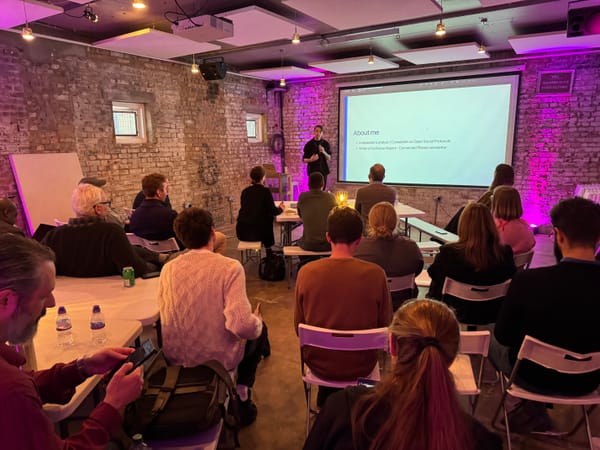The startupification of education
Something in Anne-Marie Scott’s post about losing her love of what she does struck a chord with me. Not because I’ve lost the love of what I do - on the contrary, I’m lucky enough to have re-found it. But the way she describes the startupification of education sounds very familiar:
Access is a problem of scale at one level and I am committed to working on that but I increasingly hear reductive views of digital learning limited to students navigating personalised pathways through high-end content and teachers interpreting that learning through analytics. This seems devoid of any kind of good relations and community.
The need for high scale is a crater that has been dug in the fabric of civic life.
For a startup to be venture fundable, it must demonstrate that it is scalable: in other words, it can plausibly grow to be a billion dollar company without linearly increasing the size of its team. Or to put it a lot more simply: it has the potential to make exponential profit. Mint money. Make everyone involved incredibly rich.
And many of them have! Google and Facebook rule the world (figuratively speaking). A lot of founders and a lot of investors have become wealthy by turning startups into scalable flywheels. Venture funding isn’t the only way to fund a startup, but it’s certainly the way that’s caught the public’s and the industry’s imagination, and the result is that the notion of scalability has, too.
But not everything has to be scalable; not everything has to be venture scale. There are a lot of public services, technologies in the public interest, and fully-profitable businesses that benefit by not trying to reach scale. Relationships are the building blocks of society; eradicating those in favor of analytics, in education of all places, is counter-productive, to put it charitably.
The thing to understand about scale is that it’s the antithesis of intimacy. It’s possible to build a service that hits 10 people or 10 million people with the same team; it comes down to different design choices. But it’s not possible to build a service that serves those 10 million people with the same richness of understanding that the one for 10 people has the potential to reach. You can’t get to know each person; you can’t build up a real relationship of trust and 1:1 knowledge. The best you can achieve is a kind of rat-maze simulation of intimacy. How can you possibly hope to respond to a learner’s needs in that environment? And if the educational institution isn’t meeting a learner’s needs, that means someone else has to be - meaning that education at scale can only possibly serve learners who are privileged enough to have individual support at home.
It’s also used in public services under the mistaken assumption that running them like businesses will make them more efficient. Public services *aren’t* businesses, by definition. By making the bottom line a key performance indicator, rather than long-term learner outcomes across a range of inclusive lenses, school authorities are incentivized to trade 1:1 quality off in favor of cost-effectiveness. That’s not how you get to an educated, creative society. And surely that’s the goal?
It’s been a while since I worked in education. The platform I co-founded, Elgg, was originally intended to support the kind of informal learning that happened in hallways and study groups, but remotely. I always said that if I thought it was going to replace or reduce in-person teaching, I’d shut it down tomorrow. I wish more EdTech projects would consider the same approach.


